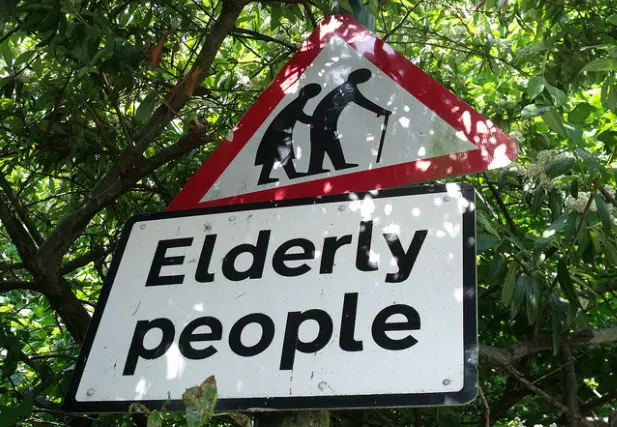Daft Old Duffer returns. Guest opinion articles do not necessarily reflect the views of the publication. Ed
I wondered when the penny was going to drop. For ages I’ve been reading in the national press how Bournemouth, or Eastbourne, or Devon, was the retirement capital of the British Isles. And I’ve asked myself, what about the Isle Of Wight? Haven’t they heard about us?
Well now they have.
On the defensive
And our reaction has been a bit unexpected. Instead of feeling proud of ourselves for finding our Island, and of our good sense in settling here, we’ve all gone a bit defensive.
We’re reacting as if we’re being accused of something. Of being undeserving scroungers, to be blunt.
We protest – quite rightly – that we’ve earned our comfortable retirement. Paid for it not only with our pension contributions over many years but with all we’ve done for our country. Like fighting wars, and bringing up kids and working like stinko until we committed the awful crime of reaching age 65. And then boss MADE us stop and go away.
Do we deserve it?
Yet we feel, somewhere deep in our bones that we don’t deserve it. Not really. After all, we’ve all been brought up to believe that the lot of man is work and work and more work. And that to do nothing is to be a shirker, a layabout.
And we’re all quite reasonably fit. We drive our cars and dig in our gardens and go for walks. So how come we’re not being required to toil? How come someone keeps sending us those cheques every month for doing absolutely nothing? Is it all going to stop one day when whoever has got the key to the money box comes to his senses?
Founded on the natural history of man
This instinctive feeling of guilt is of course founded on the natural history of man. For almost the entire time we have existed on earth – and certainly right up to within-memory times, those unable to contribute, whether from age or some disability, have been disposable, entirely reliant on the kindness of family or parish to survive.
In fact, it can be fairly said that England’s history of almost perpetual war somewhere or other in the world has at least had the result of reducing the number of old and crippled quietly expiring from slow starvation or inadequate shelter.
Only in the euphoria of post WW2 victory, much less than a century ago, was it declared that those who had given so much deserved to be looked after ‘from birth to death’
It was a self-righteous blip in attitude that is already unravelling.
It would be entirely wrong, I think, to assume the recent uplift of the retirement age was a one-off.
Cuts must be on their way
Having observed our lords and masters at work for nigh on eighty years, I am pretty certain that somewhere in the darkest depths of Whitehall lurks a quango, a committee, devoted to winkling out ways to reduce the retirement and welfare bill. Not only by steadily extending the retirement age but by stealthily reducing the welfare and healthcare on offer.
In fact we’ve already seen the latter at work, with the ‘Pathway’ end to life. A system of selective euthanasia introduced in stealth and only uncovered by accident.
Does anyone believe that scheme was concocted by the medical profession alone, with no input from the government?
Does anyone believe that the outcry its discovery caused will lead to the end of such efforts?
Yes Minister
Let me repeat this from Matthew Oakley, Head of the think tank the Prime Minister likes to consult;
“If we are ever going to bring spending under control we need to continue to reduce benefits”
“We can’t afford universal perks like the winter fuel payments”
“We need to continue to work later in our lives”
Note the ‘we’ bit, incidentally. Nice to know the gentleman and his associates will be sharing in the general misery when their turn comes to retire.
No Minister
When we survey the horrendous welfare costs facing us in the immediate future, we must surely see that the only achievable target for the government is to return us to the halcyon days of the 50s. When the average working man would require no more than three or five years of pension and health care before he died. What other method is viable?
That’s all folks. Remember, you heard it here first.





